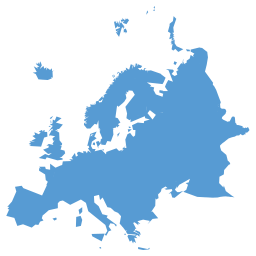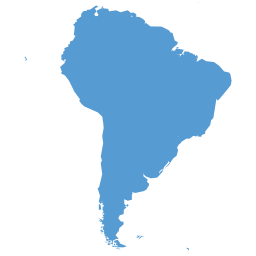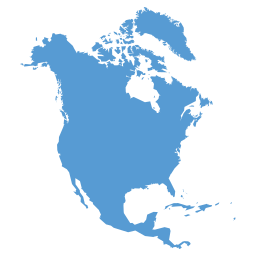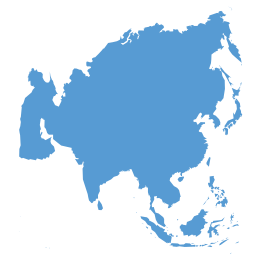Uefa Euro History - The Netherlands (part 1)
The Netherlands, nicked named the Oranje, are probably everybody's second favorite team (except maybe if you're German or Belgian), be it for their talented players, attractive style of football, or simply their iconic orange kits. Perennial underachievers or overachievers, depending on how you look at it. One could argue that they are overachievers for the insane amount of talented world class players they produce considering the country relatively small population compared to other world football powerhouses. For that same reason they could be considered underachievers since that amount of talent should, on paper, bring in more trophies. Conside for example that since their first world cup in 1934, the Dutch did not qualify for any world cup until 1974 where they reached the final! And again, they went dry from 1978 till 1990. Also missing out on 2002 with a golden generation at it's peak!
But football is a unique sport where sometimes fine margins and bits of luck determine champions. The Netherlands could easily be 3-time world cup winners. In 1974 they dominated the Germans in the final, but instead of finishing them off after scoring the first goal without the Germans having touched the ball, they got complacent and started playing like it was a football showcase. In 1978, Rensenbrink’s shot hit the post at the 90th minute with the score at 1-1. In 2010, Arjen Robben missed two golden one on one chances to beat Spain.
For all their world cup woes, The Netherlands history at the EUROs is a bit better, with one championship, a couple of semi-finals and many memorable moments! Let's check it out!
Early Years and Breakthrough (1976 - 1980)
The Netherlands did not qualify for the first 4 championships, although the finals tournament comprised of only 4 teams. It wasn't until 1976, sandwiched between their two great world cup performances in 1974 and 1978, that the Dutch have qualified for the EURO finals.
In those days, the finals tournament was basically two semi-finals and a final, and despite a full squad comprised of all their stars that impressed in WC74 (Cruyff, Krol, Neeskens, Rep, etc.. ), the Netherlands lost the first semi-final 3-1 to Czechoslovakia in extra time.
Czechoslovakia went on to win the tournament by defeating Germany in penalty shootouts with that famous Panenka penalty, while The Netherlands beat Yugoslavia 3-2 a.e.t. to claim third place. Strangely enough, with all the available talent, only Ruud Krol made it to the team of the tournament!!In 1980, the tournament was expanded to 8 teams, split into 2 round robin groups of 4, with 2 points for a win and 1 point for a draw. The Dutch were drawn in a group with Germany, Czechoslovakia and Greece. (It's difficult to fathom how Greece made it to a 8-team EUROs back in the day!!).
After barely scrapping by Greece with a penalty kick in the first group match, the Netherlands lost the second match 3-2 to Germany, and could not get the win they needed the qualify in the last match against Czechoslovakia and drew 1-1 to exit the tournament at the first stage.
The Netherlands missed out on the 1984 finals by the nearest of margins after finishing their qualifying group at the top, equaling Spain in points and goal difference. In the last matchday of the qualifiers, Spain beat Malta 12-1 and qualified because they scored 2 more goals then the Netherlands. Spain went on to reach the final match of EURO 84 and lose to the great Frech team of Michel Platini who were also the tournament hosts.
The Second Golden Generation and Triumph (1988 - 1992)
After the heartbreaking EURO 1984 qualifiers elimination, a new generation of super talented players started to emerge on the Dutch scene. Players like, Ruud Gullit, Maco Van Basten, Ronald Koeman and many others, started to put their mark on the game, and with the total-football genius and architect of their great 1974 world cup performance Renus Michels back at the helm, the Dutch entered the late 80s with a Golden generation and an amazing team with players impressing at the tops clubs of Europe.
Although the team of 1988 is remembered as a great team, the path to the championship was not smooth sailing and was more difficult than people might remember.
After dominating their qualifying group without a match lost, the Netherlands entered the tournament with great enthusiasm an optimism. But that was quickly dampened by a first match loss to the great 80s team of the USSR 1-0. The familiar pessimism and feeling of underachievement returned.
The next opponent was a strong and talented England team, on the back of a great run in World Cup 86, but also with a shock first match loss against Ireland. So everything was on the line and there was no more room for errors. However, a masterful performance by the swan of Utrecht, Marco Van Basten with 3 goals, gave Holland the win and ensured things were back on track.
Although the score was 3-1 to Holland, the match was well balanced and England dominated long stretches of the match, putting the Dutch under pressure and hitting the post twice. In the end, the lethal skills of a clinical finisher made the difference.
The last match of the group was a very difficult battle against a very tough and rugged Irish team who defeated the English in the first match but also lost to the USSR in the second. The Netherlands ended up 1-0 winners with a strange header scrambled out of nothing by Vim Kieft in the 82nd minute, to qualify to the semi-finals for the second time in their history.
With a difficult group negotiated, the Dutch were looking for a fresh start in the elimination rounds, but their semifinal opponent was the hosts, WORLD CUP 86 finalists and eternal rivals Germany, with their own roaster of world class players like Matthaus, Klinsmann, Voeller, and more).
All the predictions were favoring Germany, but the Dutch managed to put out a great performance and came back from 1-0 down to defeat the Germans in their own backyard, thanks to a penalty from Ronald Koeman and a smooth sliding finish by Van Basten after a defense-splitting pass from Jan Wouters.
In the final, the Dutch would face a rematch with the USSR, who pretty much cruised through the tournament and steamrolled their opponents with swash buckling and high tempo attacking football, including a 2-0 beat down of Italy in the semifinals.
The soviets, as usual, started the match the strongest with a high tempo and a series of blistering attacks. However and against the run of play, legendary captain and world footballer of the year Ruud Gullit opened the scoring with a powerful header after being left completely unmarked in the box.
After taking the lead, the Dutch started growing into the game with solid performances in defense and attack. The second half saw a continuation of the domination culminating in one of the most memorable goals in all international football history.
With Arnold Mühren pushing from the left flank and hitting a long cross to the far post, Marco Van Basten unleashed a stunning precise volley from an impossible angle to beat Rinat Dassaev, one the best goalkeepers in the world at the time, to give The Netherland a 2-0 win and their first ever international trophy.
After a disappointing WORLD CUP 90 performance, the Dutch team were eager to get back to the top level four years later in EURO 92. The team was almost the same but more mature with more experience. In addition, an exciting new young talent in the name of Dennis Bergkamp joined the team.
The performances in the group stage were very good, starting off with a win over Scotland 1-0, followed by a 0-0 draw with the Commonwealth of Independent States (formerly the Soviet Union), and finishing the group with an emphatic 3-1 win over world champions Germany to top the group and exact revenge for losing to them in second round of WORLD CUP 90.
In the semifinal, the team were facing the tournament's surprise package Denmark. It was a tough affair with the Dutch coming back from behind twice to tie the game 2-2 after regular and extra time for the match to go to penalties. Well, everybody scored their penalty except one Marco Van Basten for the Dutch to be eliminated. Denmark went on to win the tournament beating Germany 2-0 in the final.

 Europe
Europe
 Africa
Africa
 South America
South America
 North America & Caribbean
North America & Caribbean
 Asia & Oceania
Asia & Oceania